A Cuppa with Renee Lynch

Hi Renee, can you please tell us a little bit about yourself and your background in naturopathy?
Hello, my name is Renee. I live in Sydney’s Eastern Suburbs just a couple of minutes walk to the beach. Life at the moment feels like cramming everything into the hours of 9-3 pm because my eldest daughter has started kindy this year. I have so many wonderful business ideas but the season I am in with an almost 6YO and 2YO means that right now I have much more important things that require my focus. I somehow made it through my Bachelor of Health Science Naturopathy despite killing nearly every plant I have ever bought.
Why did you decide to specialise in women's health, focusing on areas such as preconception care, pregnancy, and postpartum?
If I can work with a couple during those preconception months, then I could potentially be helping to improve the DNA of their future child, resulting in better longterm health outcomes for the future generation. For me it is more than the results I see in a 1:1 consult, it is the ripple effect that occurs when people share their newfound knowledge with friends and family. Beyond that, I must say I find it really upsetting how neglected women are within the medical system. So many symptoms get overlooked and women are told everything is fine despite not feeling themselves. If I can somehow help a woman feel more like herself and thrive, I have done my job.
Can you explain the importance of preconception care for couples planning to conceive and how your holistic approach might differ from traditional mindsets?
I see a lot of couples who have gone down the path of IVF because they have been trying to conceive for 12 months or more with no success. While assisted fertility techniques are by far one of the most incredible medical advancements to date, the work they do CANNOT improve egg quality or sperm quality, and that starting material is so important for pregnancy outcomes. Spermatogenesis which is the production of sperm from the primordial germ cells takes approximately 64-74 days. For women, the development of a primordial follicle containing an oocyte to a preovulatory follicle takes in excess of 120 days. For this reason, we like to spend at least 3 months improving the outcome of both of these processes.

What role do diet and lifestyle factors play in preconception care?
The impact of our diet, stress, sleep, environmental toxins, and lack of exercise/over-exercising can greatly affect both egg and sperm quality (and hormones in general), so I work with a couple to make positive and sustainable changes in all of these areas to optimise their overall health which in turn improves egg and sperm quality. A study published in the journal BMJ Open found that just five units of alcohol every week could reduce the quality of a man’s sperm. That is not a lot of drinks in the Aussie culture and it is pretty alarming. Also, the impact of smoking and vaping which sadly is still prevalent, can also have negative effects on both male and female fertility. If I could wave a magic wand and help improve one thing overall it would be stress levels. I have so many stressed-out clients and because it is not necessarily a physical symptom it is one that often goes unacknowledged.
What are some common obstacles or challenges couples face during the preconception period, and how might you address them in your practice?
When a woman finally understands the intricate dance that her hormones do each month and when her fertile window is, it can cause a lot of stress in the relationship. We need to have sex right now!!! This can be a real mood kill. While it is amazing that women are starting to understand their cycles it can take the magic out of the moment. I get a lot of insight from the likes of Esther Peral and suggest to my clients to think back to when they first met, have sex outside of the bedroom, and bring the fun back. If they are going out on a date, do the deed before they go out so they have this little secret between them. I know these things sound silly, but when you are trying to conceive and you feel robotic for one week of the month, mixing it uo like this can help.
Can you tell us a little bit about the importance of male fertility in preconception care and the role that partners play in this process?
I feel like I am preaching to the converted here, but up until that first trimester has finished we are talking a 50/50 split in responsibilities. Out of the 1 in 6 couples with infertility, approximately 20% of the time it's completely due to sperm issues. Sperm problems are also a contributing factor in an additional 30-40% of couples. However, I personally still think many people think that fertility is a woman’s issue because that is who is carrying the baby so to speak. I absolutely love it when a couple both decide to do the prep work, but sadly couples only make up about 25% of my clientele.

How do you integrate your naturopathic approach with conventional fertility treatments for couples undergoing assisted reproductive technologies (ie. IVF)?
I do a lot of additional pathology tests that assess their overall health and areas that are missed in conventional medicine (purely because it is not their zone of genius). I work alongside conventional treatments improving diet, and stress levels, drilling into the importance of sleep, and reducing endocrine-disrupting chemicals… all of which do not interfere with their treatments. When it comes to herbal medicine and supplementation, my clients are informed when they can and can’t take something and when to stop certain supplements. There is also a few fun things we can do around implantation with watermelon, ginger and beetroot juice.
How do you support couples who have experienced previous difficulties with conception or miscarriages?
I hold the space for them and listen. I have personally experienced miscarriage and understand to a certain degree what they may be going through. The hardest part is when they conceive after loss and have that anxiety linger. I tell them that it is perfectly okay to feel anxious and fearful, but it is equally okay to also feel joy and hope. I use a lot of affirmations during times like these because teaching them the power of mindset is really important.
Why is it important for couples to educate themselves on preconception and fertility, and how can they recognise when they might benefit from further, more personalised support in their journey?
First and foremost I think it is important for a woman to understand her cycle and the hormone ebb and flow and that very small fertile window. Without that basic knowledge (which sadly most of us only learn once we decide to start a family), you’ll have no idea when you’re supposed to try. I still have so many women using their period tracker app to tell them when their fertile window is. The issue with this is that the apps are working on their own algorithm based on when you marked the days of your period, it is just a guess and you could be completely missing your actual fertile window. If your cycle is irregular, heavy, missing completely, painful or any other variation of this, I would be seeking further support so that you are not just pushed down the road of IVF. For men, if there are issues with libido, erectile dysfunction, gut health or health in general, they should definitely be signing up for preconception care.

Are there any Mayde Tea blends that you are currently enjoying or have as a favourite?
I LOVE the Chai Latte Powder and Chai Sprinkles… you cannot get one without the other. I recommend this in pregnancy or when someone is trying to reduce their caffeine intake.
Love the English Breakfast and the ritual of steeping the tea without a teabag.
Adapt Loose Leaf Tea - need this to balance my own nervous system.
What are you currently:
Reading: Tomorrow, and Tomorrow, and Tomorrow, by Gabrielle Zevin
Listening to: Anything I can find on Perimenopause
Watching: The Gentlemen
Eating: Currently loving my savoury chicken mince on rice or sourdough for lunch. Takes 10 minutes to make and is protein-rich so it hits the spot.
If you can find more about Renee at here or on Instagram.

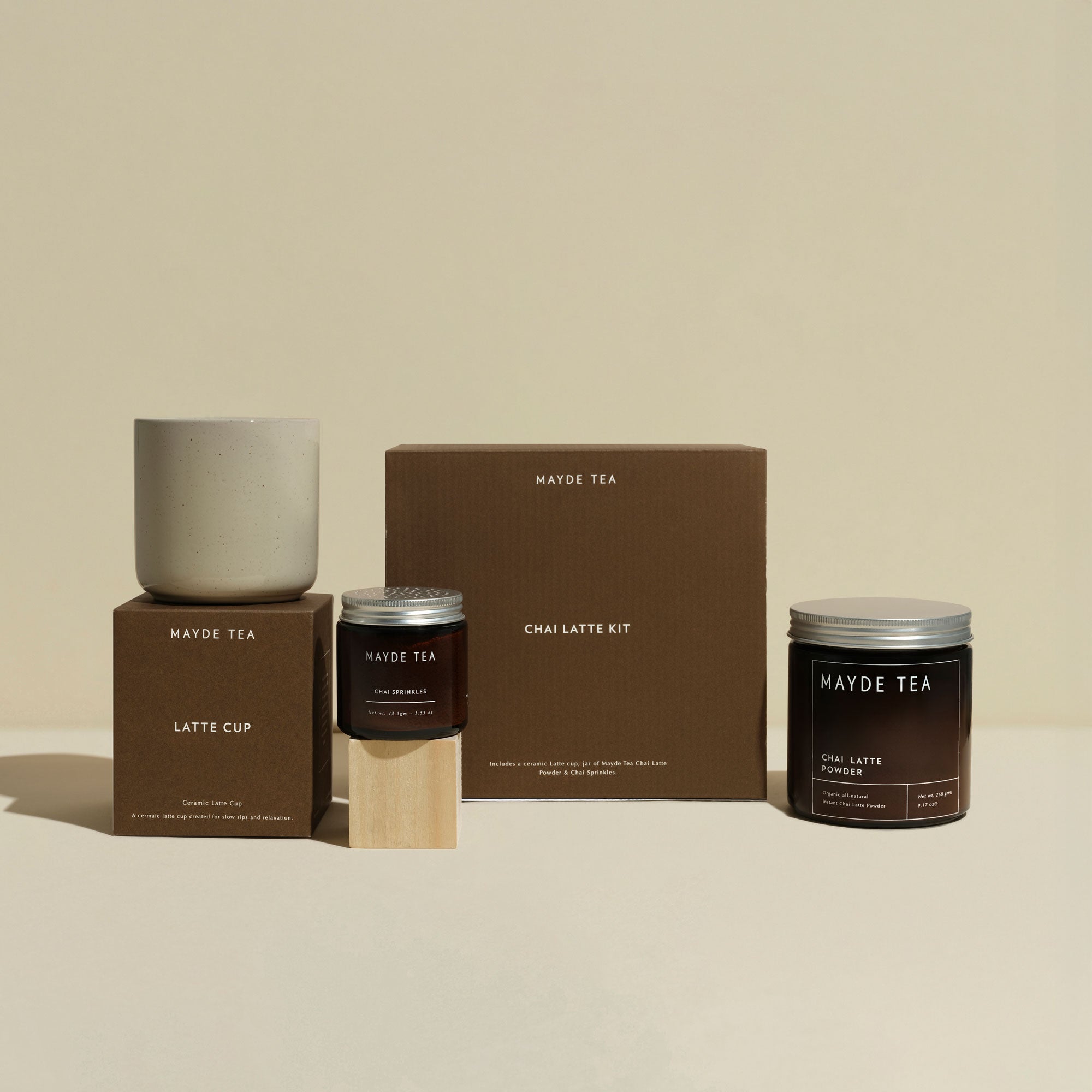
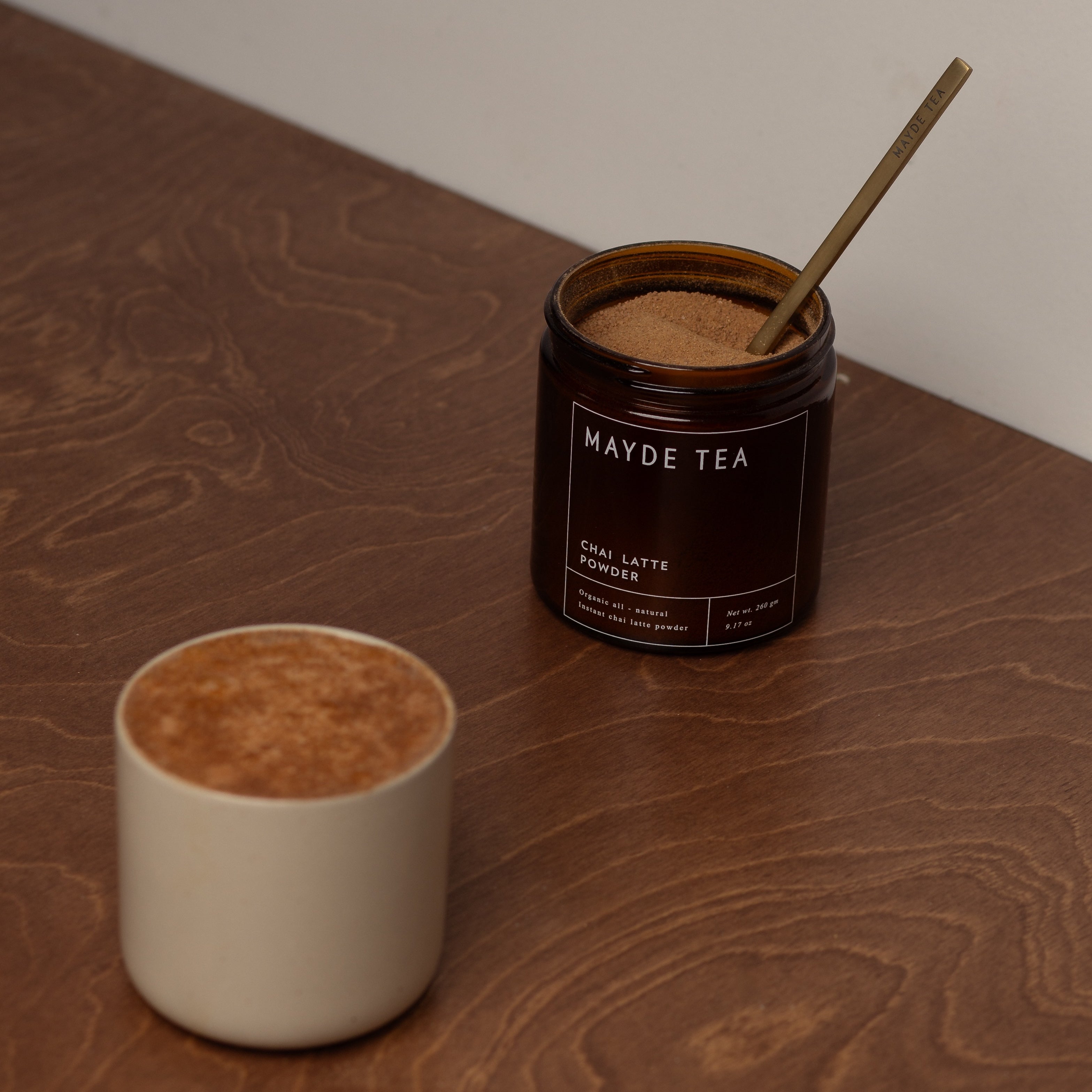
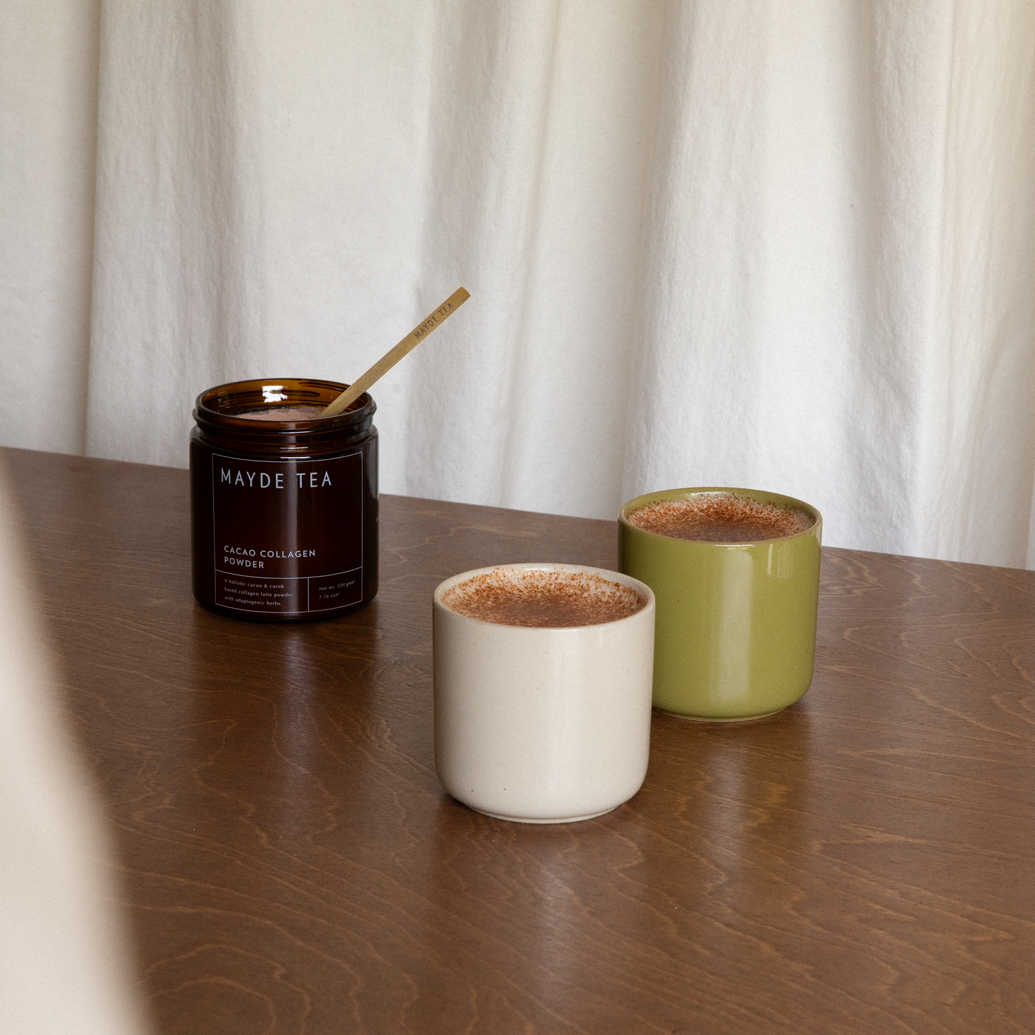
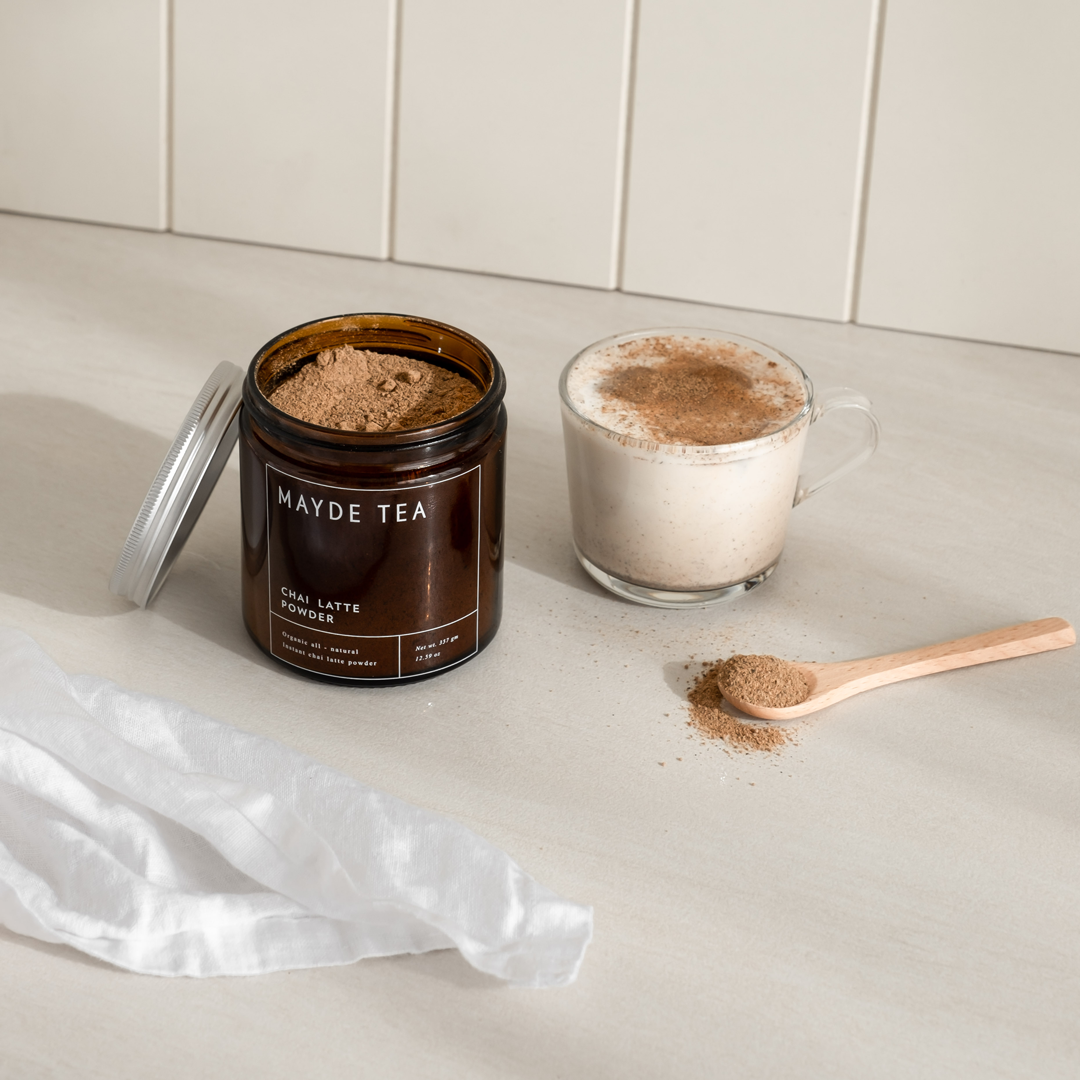
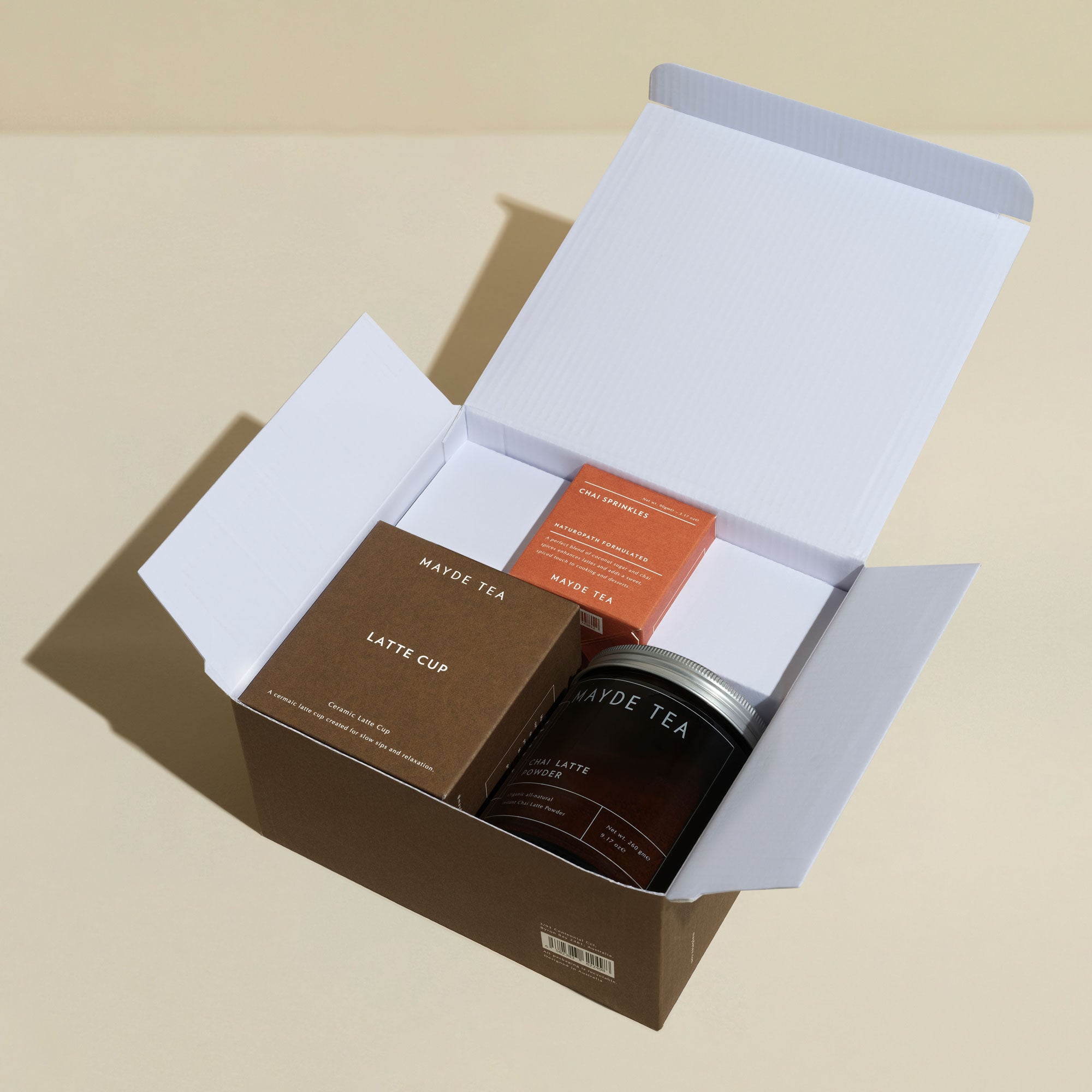
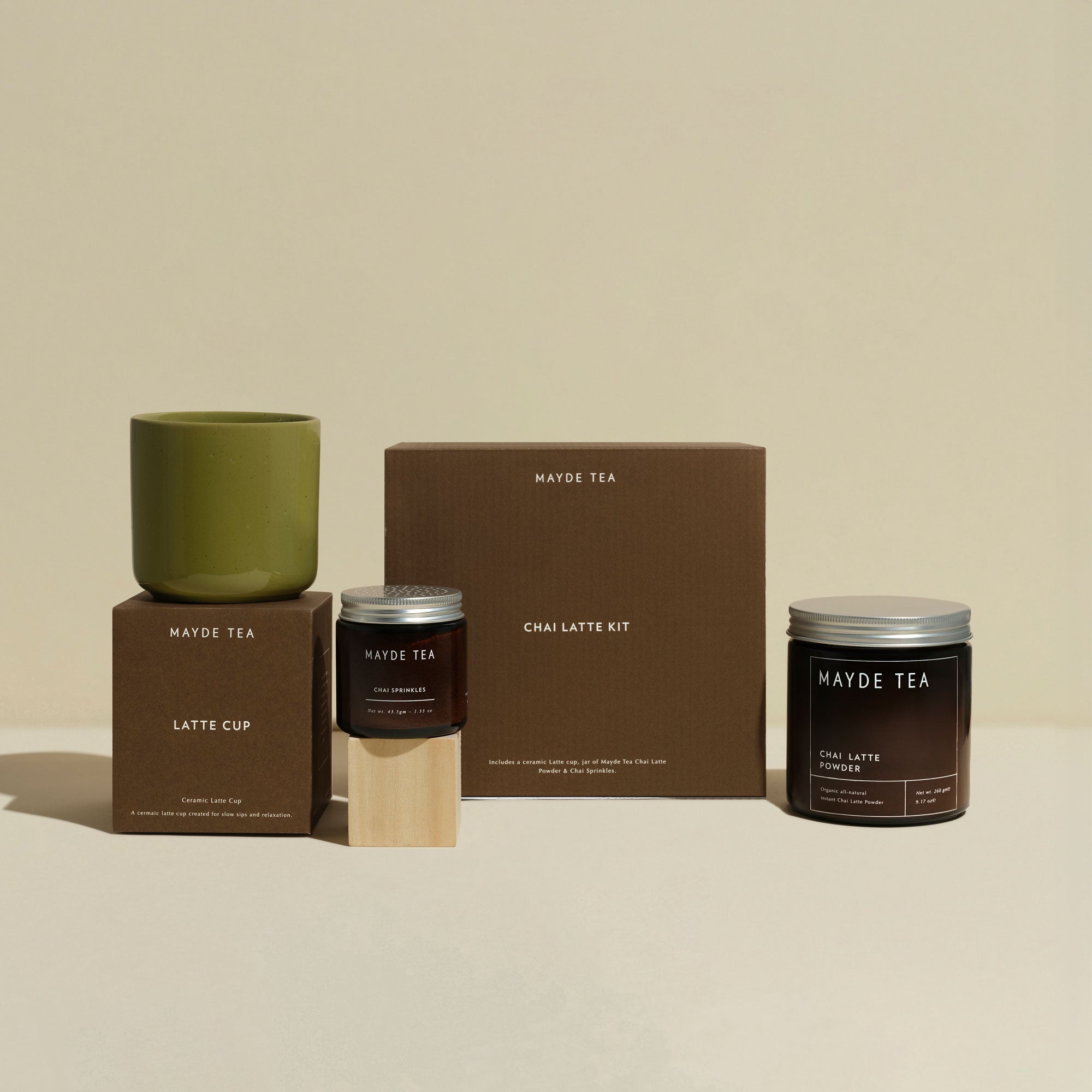
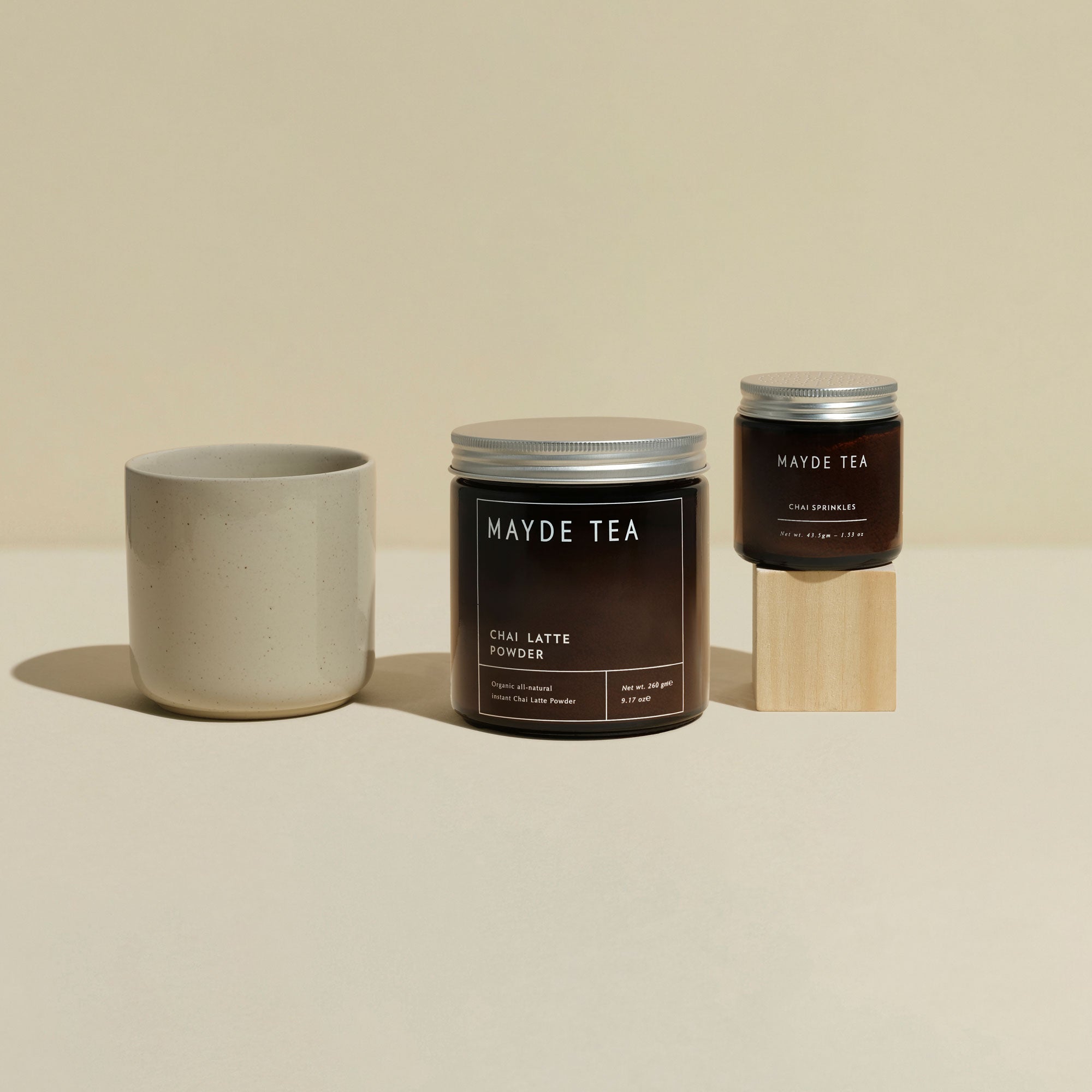
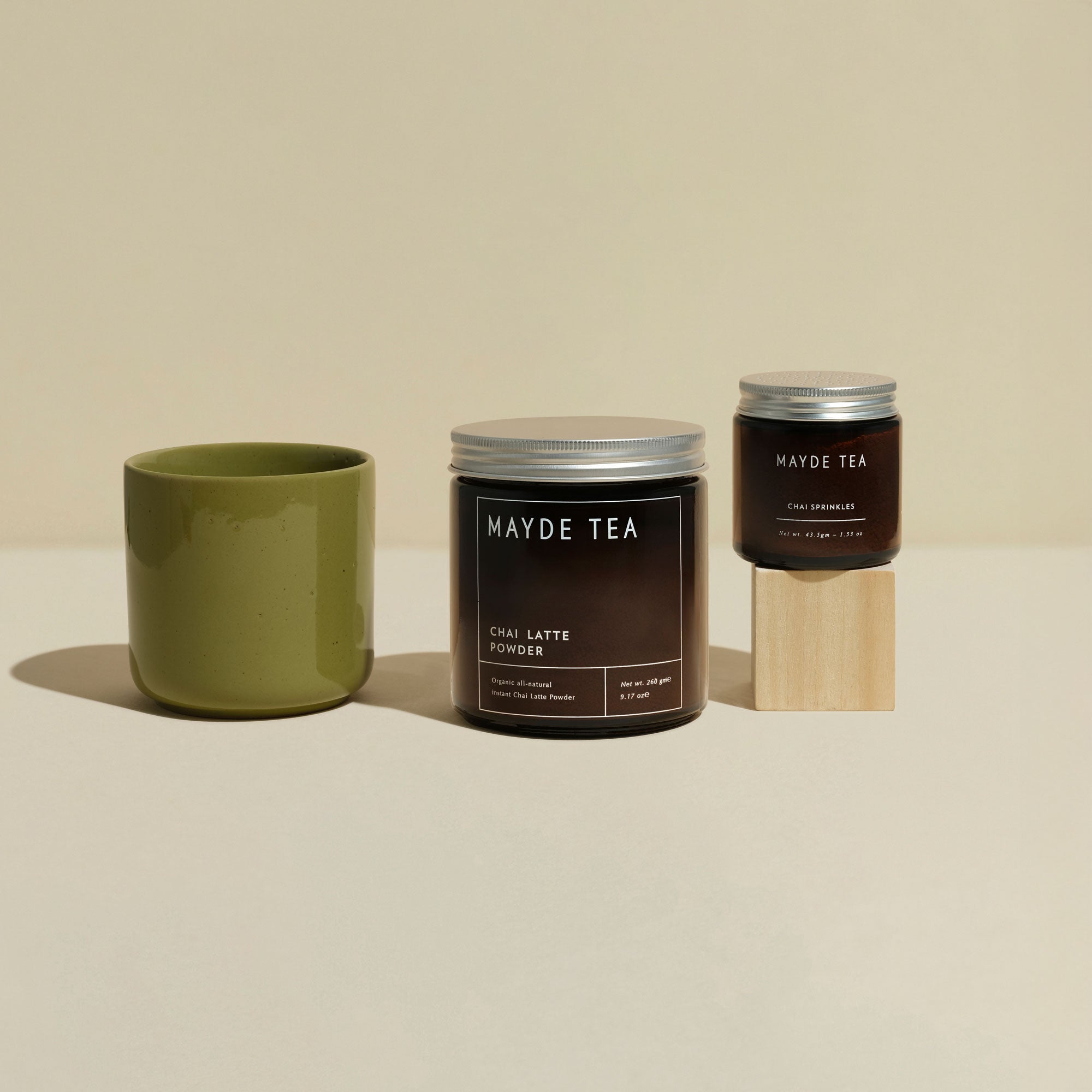
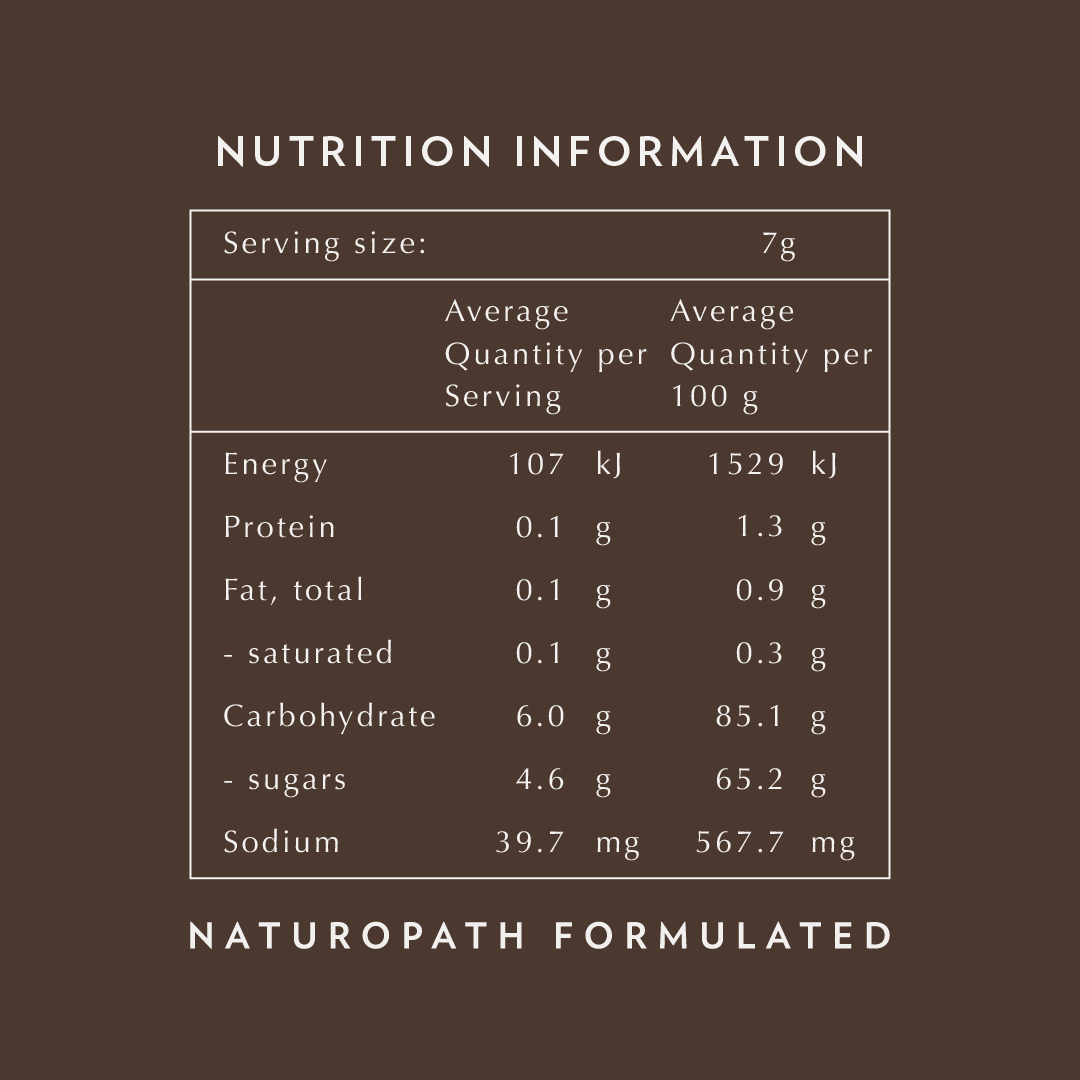
Leave a comment
This site is protected by hCaptcha and the hCaptcha Privacy Policy and Terms of Service apply.